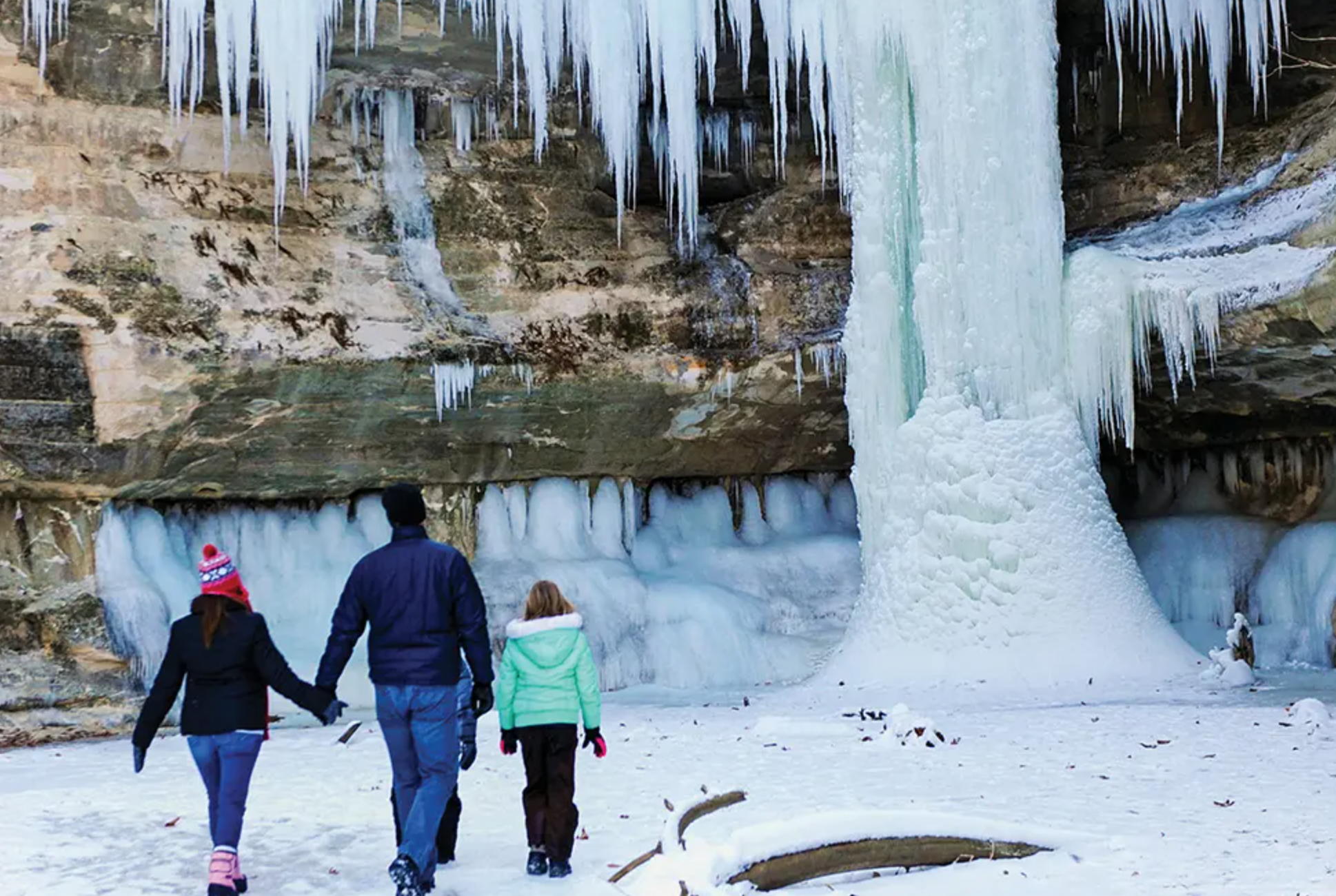One of Illinois’ most popular state parks could be expanding soon.
For over 100 years, Illinoisans and visitors to our state have flocked to Starved Rock State Park in LaSalle County to take in the natural beauty, the hiking trails and the history. In 1911 the state purchased much of the land and made Starved Rock Illinois’ second state park.
At the time, and in the decades that followed, one of the attractions in the immediate vicinity of Starved Rock was a geological formation known as Bailey Falls.
The falls were located on Bailey Creek near the Vermilion River. Like most of the geology of northern Illinois, these waterways were formed by the melting glaciers of the last ice age, between 10,000 and 16,000 years ago. But unlike many of the rivers and streams of northern Illinois, Bailey Creek carried only a small amount of water, not nearly enough to erode away the limestone through which the falls plummeted.
And so, for thousands of years, what came to be known as Bailey Creek continued to tumble over the falls.
The creek, and the adjacent falls, were named for Lewis Bayley, a War of 1812 veteran and an early settler in the region. The Bayley family lived on the land in LaSalle County in the 1830s, opening a sawmill there half a century after the battle which gave the nearby sandstone cliff its name, and half a century before the opening of the first Starved Rock Lodge.
Bayley’s land was located on Bailey Creek near Bailey Falls, in the vicinity of Bailey’s Point and Bailey’s Grove, a geographical collection which led the author of a 1922 article in the Journal of the Illinois State Historical Society to dryly note “that the Bayley family was one of considerable importance among the early settlers in LaSalle County.”
Somewhere along the way, the spelling of the family name changed. Lewis and Betsy Bayley had a son, Timothy Bailey, who fought in the Civil War for three years. He in turn had a son who served in France during World War I. Around the time Lewis and Betsy’s grandson returned from the Western Front, his family’s old lands in LaSalle County were becoming a tourist destination.
With the arrival of the 20th century also came automobiles and the travelers who used them. A road was built, which forded the creek near the old Bailey homestead, and soon these tourists found the falls. It became a well-liked picnic spot, as well as a site for fishing and swimming, and like most of the surrounding area a popular place for hikes.
There are even stories about motorists driving their autos right up to the falls an enjoying a natural car wash. Just as the nearby Starved Rock had become the site of a lodge in the 1890s, Bailey Falls soon had its own snack bar.
But all that changed in the 1950s. A private company bought the land for its limestone. A quarry was built and the creek was diverted. The land remained in private hands and off-limits to the public for decades.
While access to the area around the former Bailey Falls was cut off, the memory of the site was not. In 2018 the state announced plans to expand not only Starved Rock State Park but also the nearby Matthiessen State Park by almost 3000 acres, an acquisition which included the land around Bailey Falls.
In the meantime, Starved Rock continued to attract thousands of visitors each year. The park, always a popular escape from the nearby urban areas of Chicago and Milwaukee, enjoyed a renaissance of sorts during 2020 as Midwesterners who had gotten their fill of staying at home during the pandemic sought a close-by destination to stretch their legs and enjoy nature.
No date has been announced for the opening of the new area of the park around Bailey Falls. Find visitor information for Starved Rock and Matthiessen State Park.
___________________________
Learn more about the history of Starved Rock: The Gibraltar of the West
